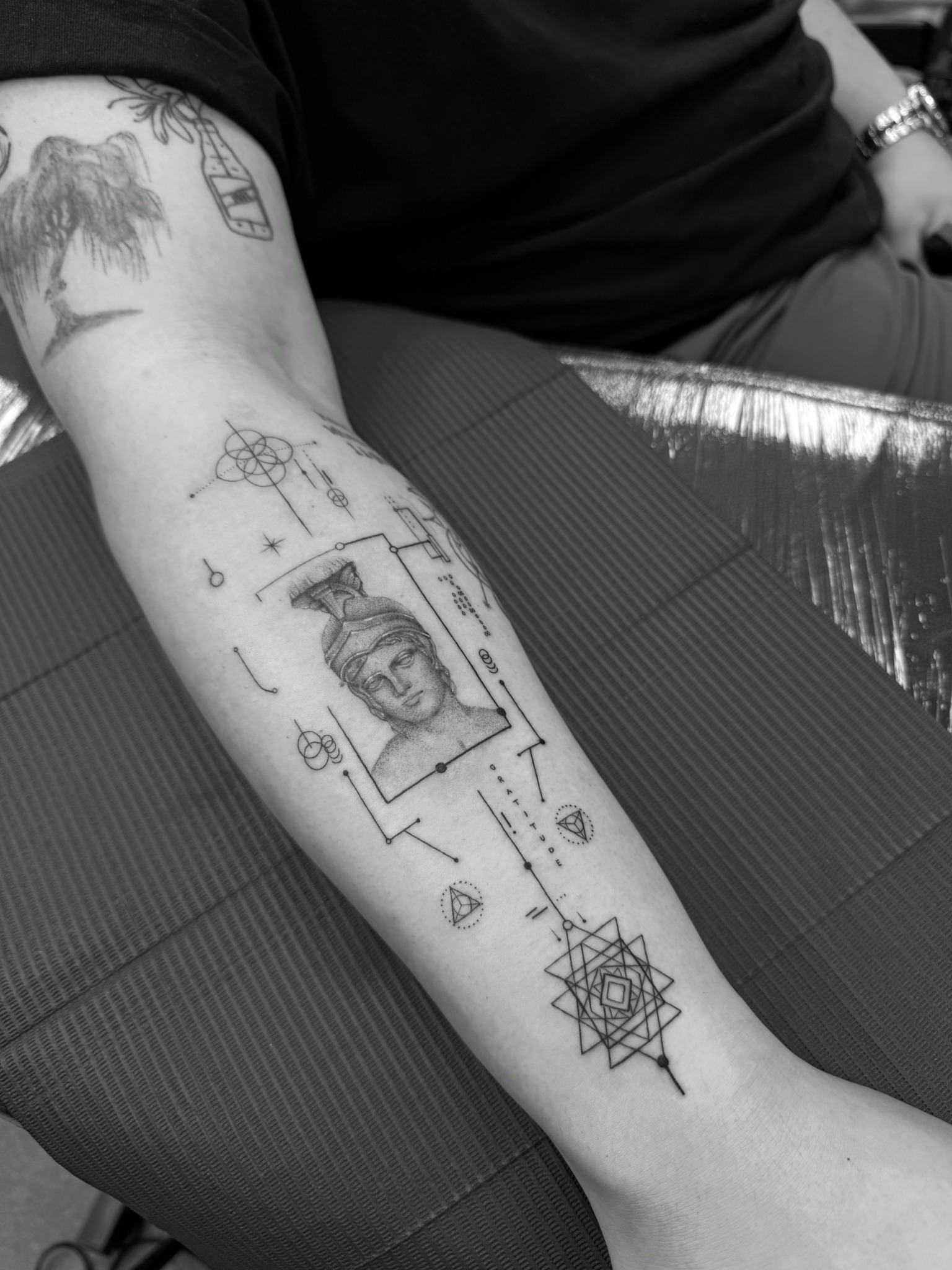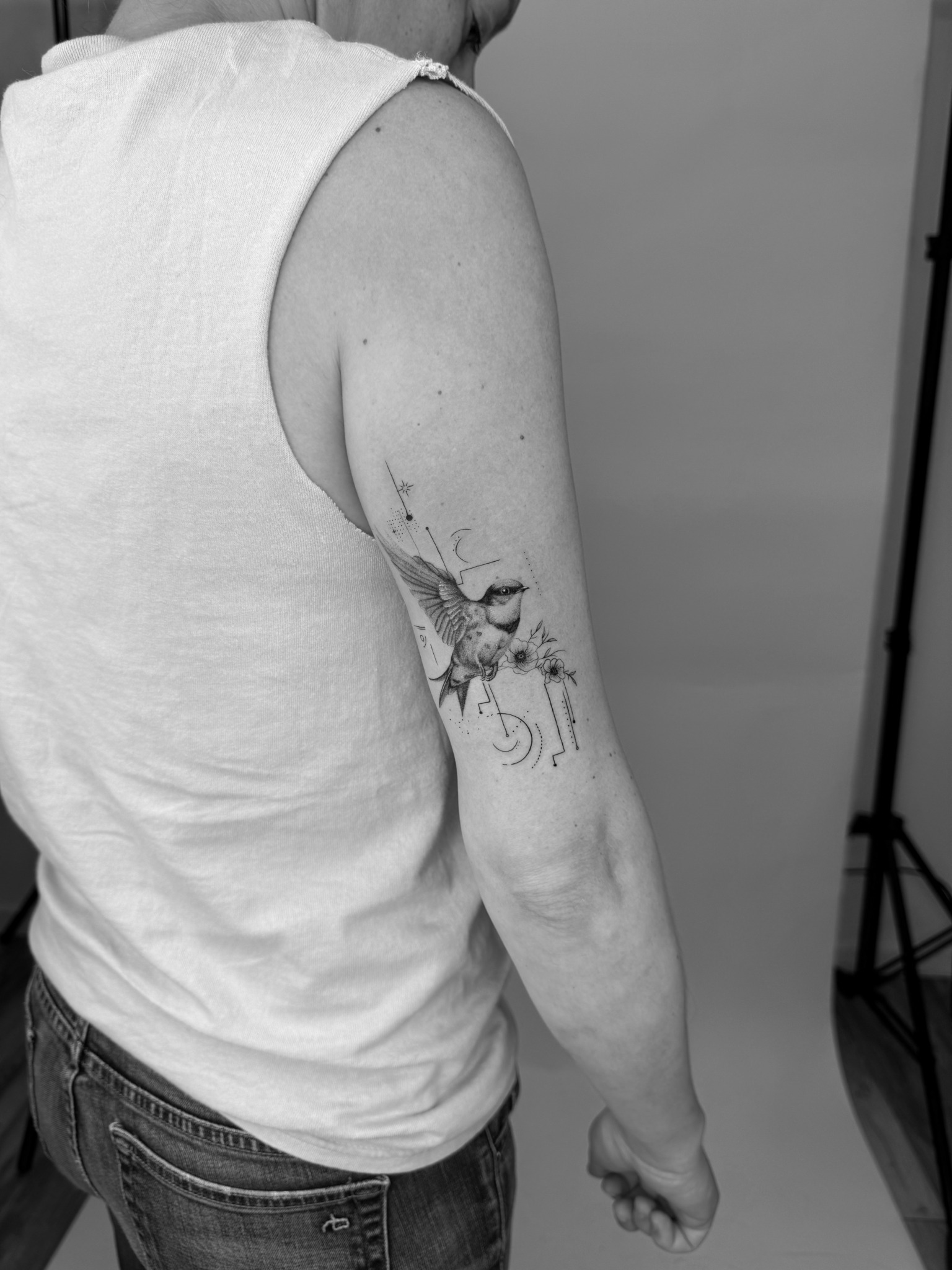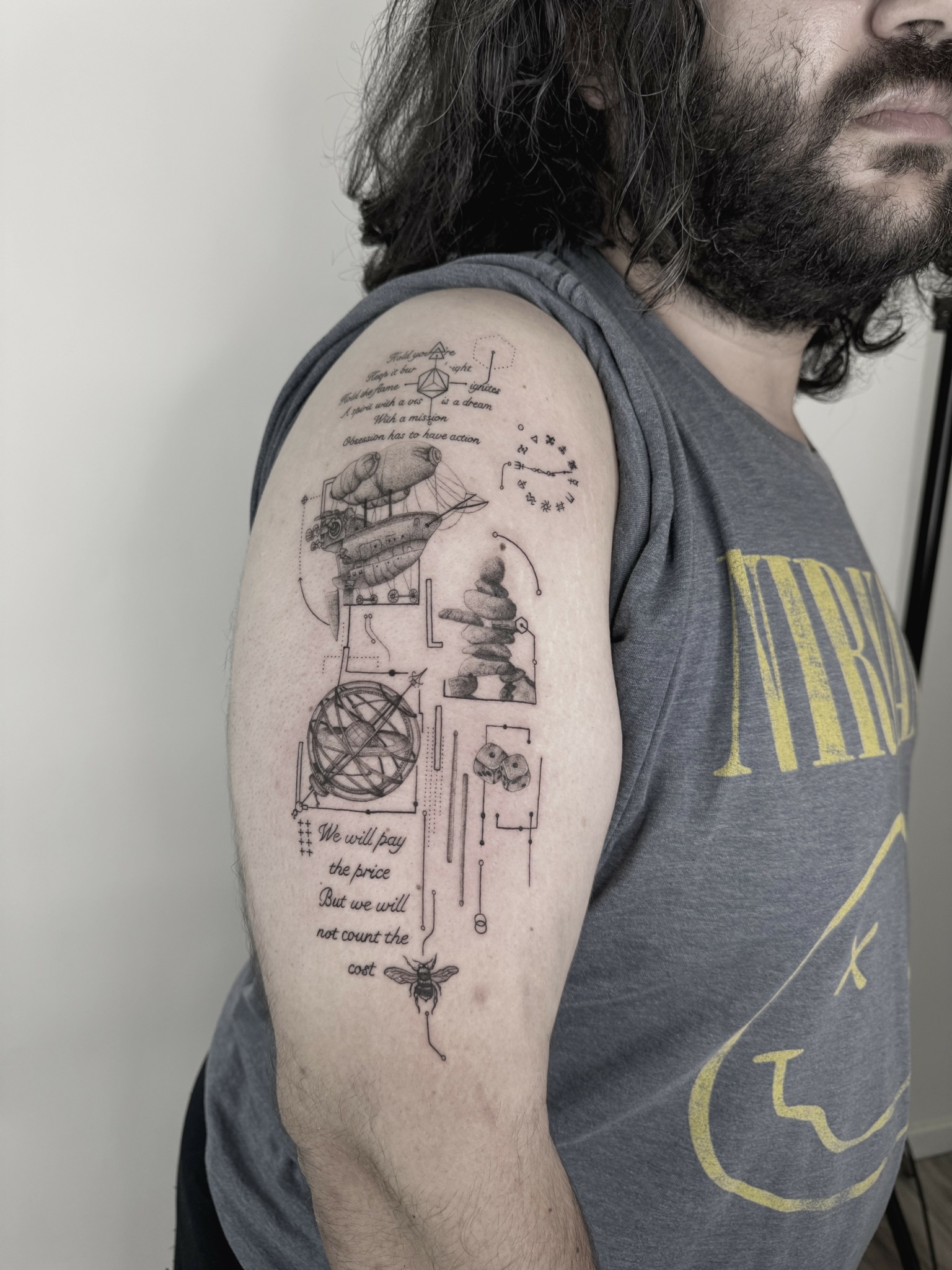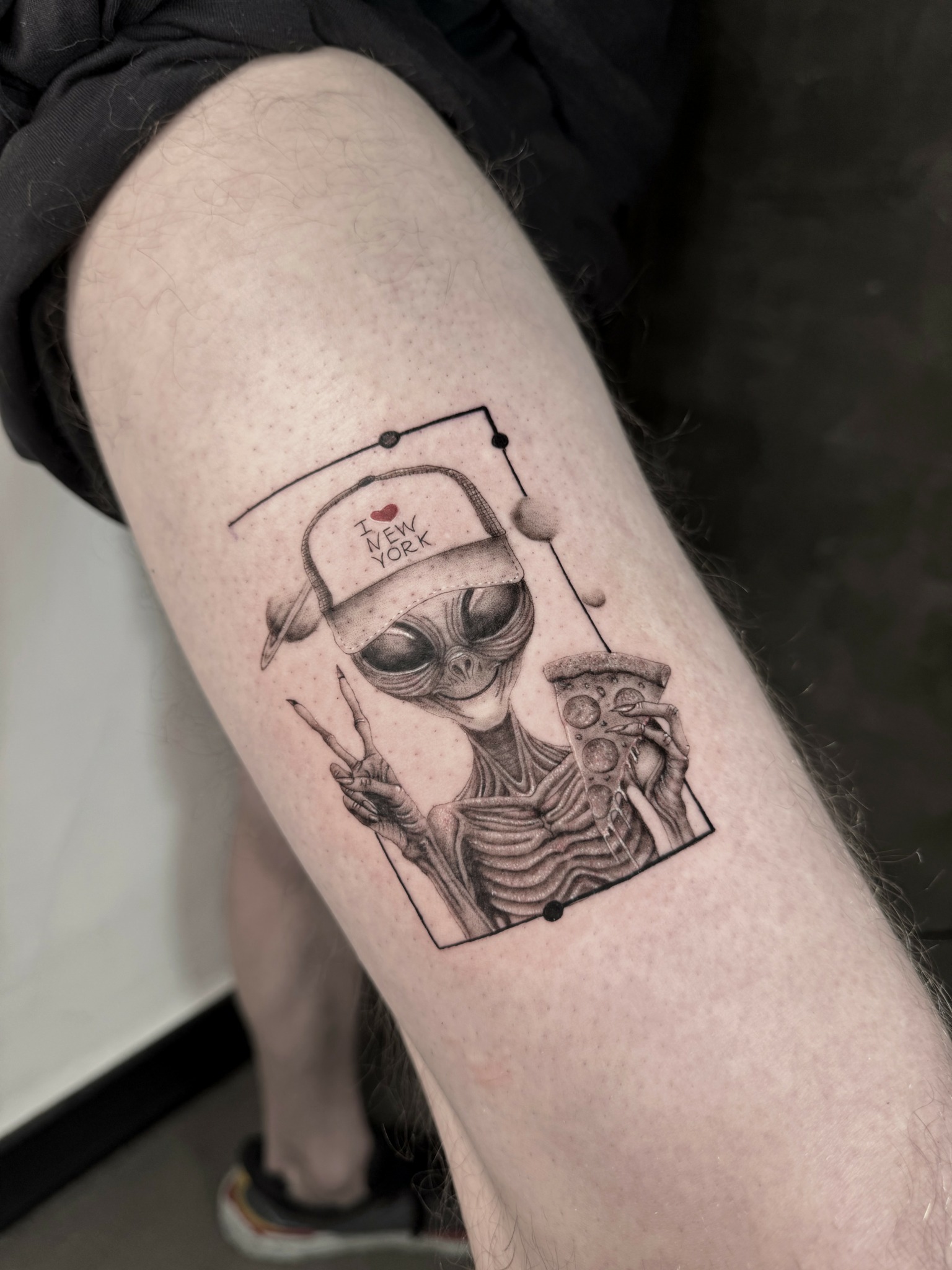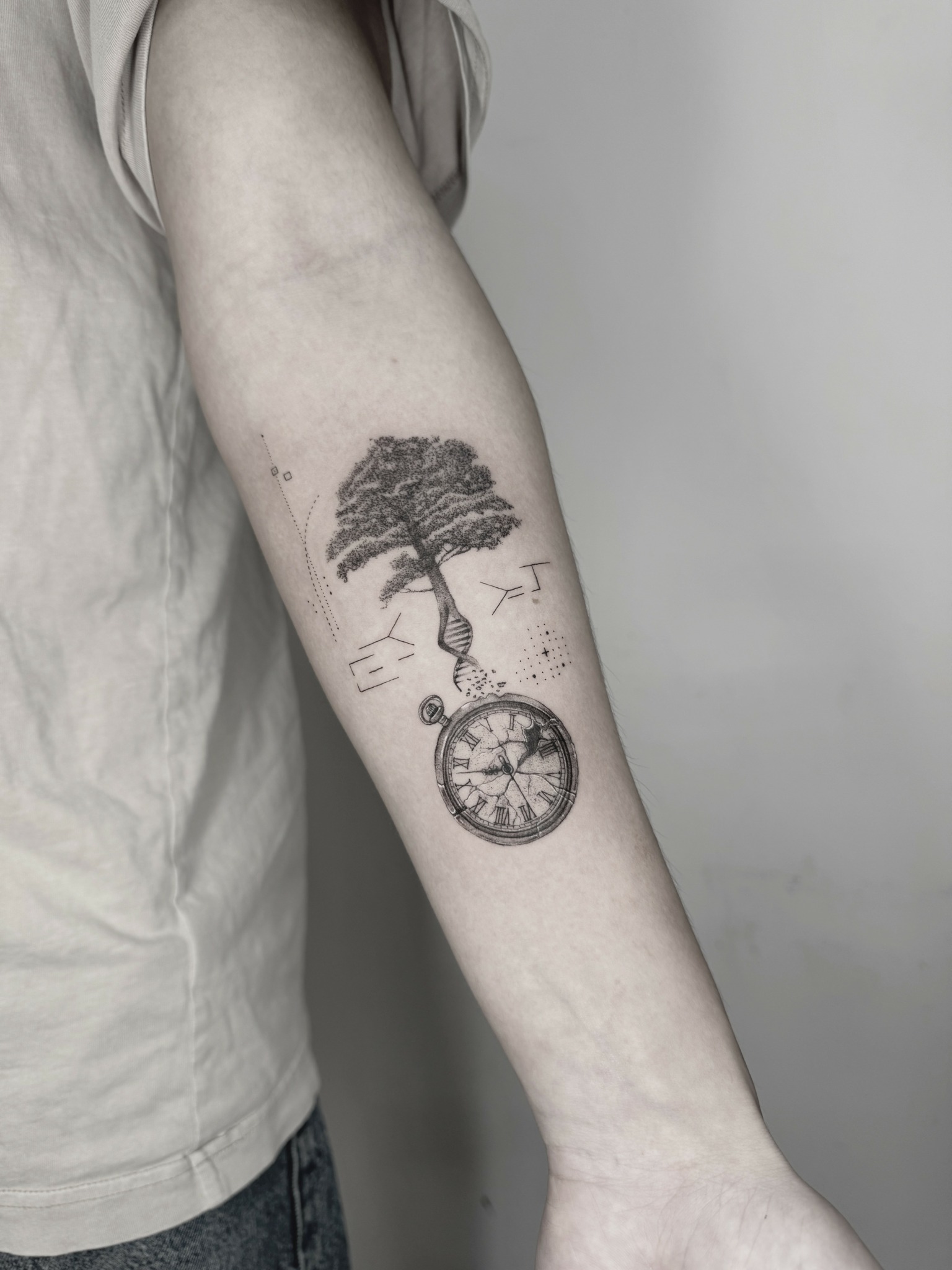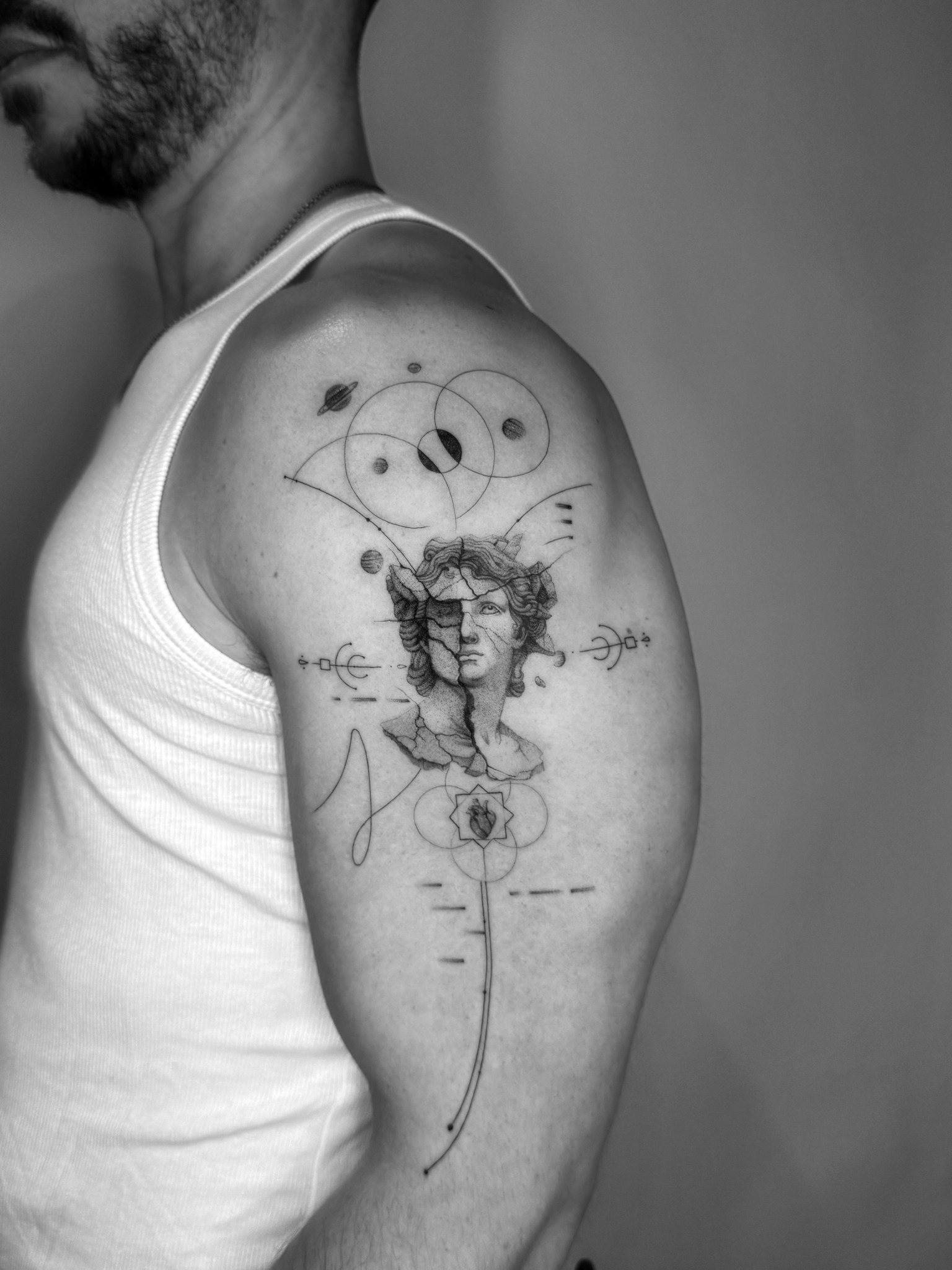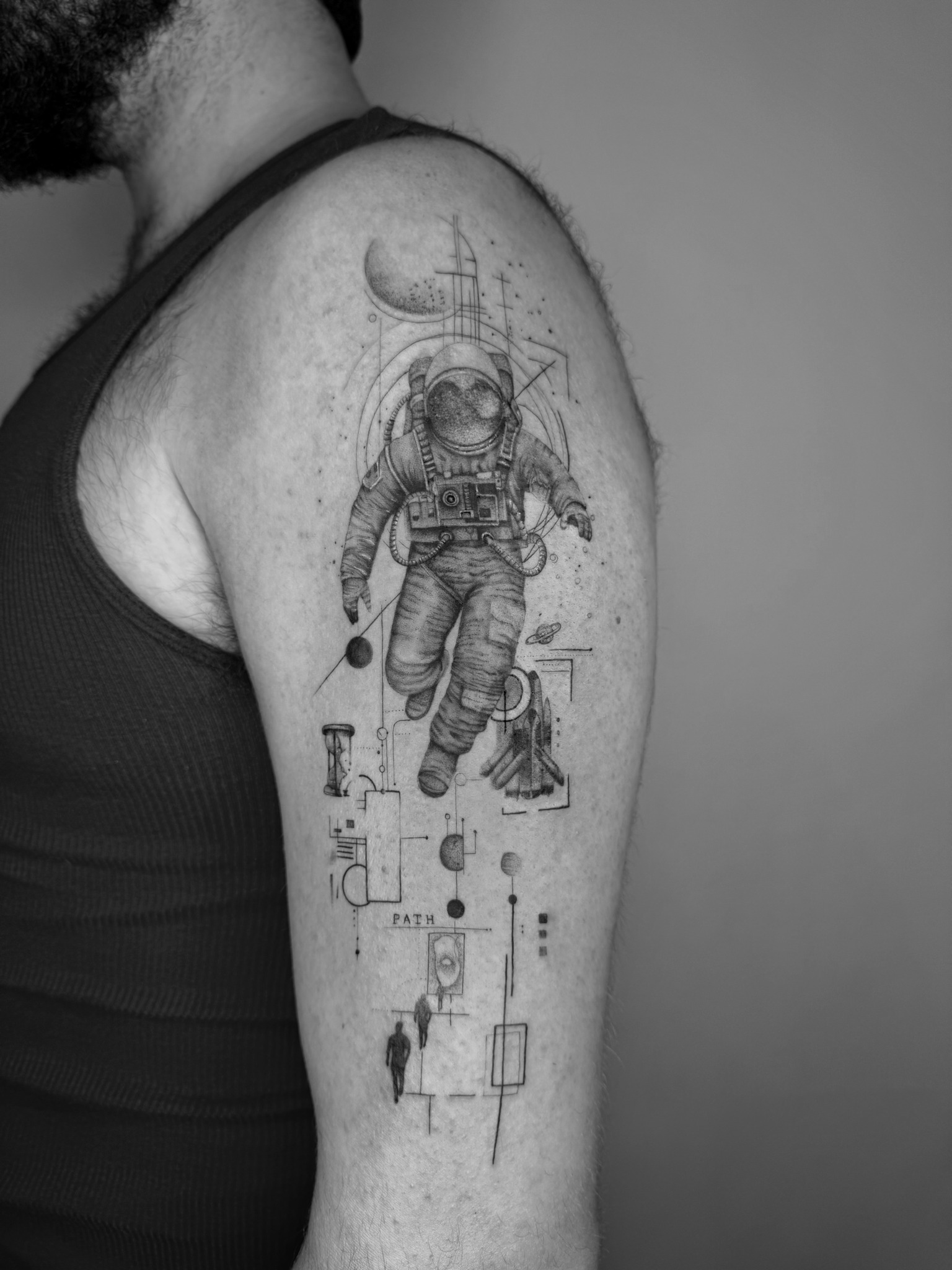We were lucky to catch up with Ilkim Koc recently and have shared our conversation below.
Ilkim, thanks for taking the time to share your stories with us today Have you been able to earn a full-time living from your creative work? If so, can you walk us through your journey and how you made it happen? Was it like that from day one? If not, what were some of the major steps and milestones and do you think you could have sped up the process somehow knowing what you know now?
Yes, I’ve been able to earn a full-time living from my creative work. I started my tattoo career in 2013, and from the very beginning, I’ve supported myself through the art I create.
Looking back, if I had the knowledge and experience I have now—especially regarding things like how to use social media effectively, developing my own style, and how I connect with clients, I believe the process would have been much smoother and faster. But every step of the journey taught me something valuable.
As always, we appreciate you sharing your insights and we’ve got a few more questions for you, but before we get to all of that can you take a minute to introduce yourself and give our readers some of your back background and context?
My name is Ilkim Koc, and I live in New York. I started my tattoo career in 2013, after completing about 6-7 months as an apprentice. Since then, I’ve maintained the same level of professionalism and dedication in my work.
When I first began, my style was mainly Old School Traditional. Today, however, I’m known for my microrealism and geometric abstract designs.
One of my proudest achievements is fulfilling my long-time dream of moving to the United States. I’m truly proud of making that happen.
Currently, I primarily work in microrealism, geometric abstract, and fineline tattoo styles modern tattoo techniques that I love and use to express myself creatively.
In your view, what can society to do to best support artists, creatives and a thriving creative ecosystem?
I believe the most effective way to support artists and creatives is by giving their work space, recognition, and value. Creative work takes time, effort, and emotional energy so it’s essential for society to understand that art is not just a “hobby” or a “luxury.”
Also, having real conversations with artists, listening to their stories, and using our purchasing power to support local or independent creatives can make a big difference. For creative culture to be sustainable, society must recognize that art is a vital form of value.
What do you find most rewarding about being a creative?
For me, the most rewarding aspect of being an artist is knowing that my work stays with someone forever literally, on their body. That sense of permanence means a part of my art lives with them for life.
It’s also incredibly fulfilling to see my work being shared, talked about, and appreciated by people from all around the world. When someone from another country sees my work, connects with it, and values it that, to me, is the best kind of reward.
Knowing that my art can cross borders and leave a lasting impact on someone’s life is what brings me the most fulfillment in this profession.
Contact Info:
- Instagram: https://www.instagram.com/ilkimkoctattooer/
